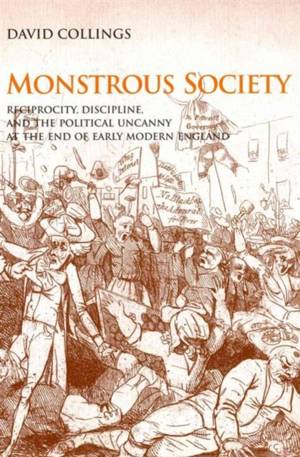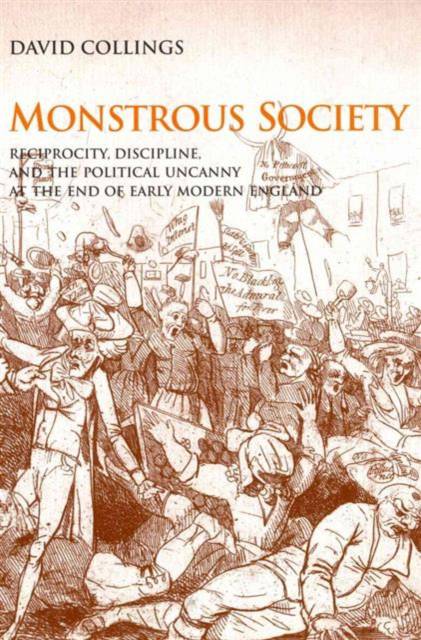
- Afhalen na 1 uur in een winkel met voorraad
- Gratis thuislevering in België vanaf € 30
- Ruim aanbod met 7 miljoen producten
- Afhalen na 1 uur in een winkel met voorraad
- Gratis thuislevering in België vanaf € 30
- Ruim aanbod met 7 miljoen producten
Zoeken
€ 122,95
+ 245 punten
Omschrijving
Monstrous Society argues that in the eighteenth-century moral economy, power was divided between official authority and the counter-power of plebeians. This tacit, mutual understanding comes under attack when influential political thinkers, such as Edmund Burke, Jeremy Bentham, and T.R. Malthus attempted to discipline the social body and make state power immune from popular response. But once negated, counter-power persisted, even if in the demands of a debased, inhuman body. This response wis writ large in Gothic tales, especially Matthew Lewis's The Monk and Mary Shelley's Frankenstein, and in the innovative, embodied political practices of the mass movements for Reform and the Charter. By interpreting the formation of modern English culture through the early modern practice of reciprocity, David Collings constructs a "nonmodern" mode of analysis, one that sees modernity not as a break from the past but as the result of attempts to transform traditions that, however distorted, nevertheless remain broadly in force.
Specificaties
Betrokkenen
- Auteur(s):
- Uitgeverij:
Inhoud
- Aantal bladzijden:
- 332
- Taal:
- Engels
- Reeks:
Eigenschappen
- Productcode (EAN):
- 9781611483154
- Verschijningsdatum:
- 1/01/2009
- Uitvoering:
- Hardcover
- Formaat:
- Genaaid
- Afmetingen:
- 168 mm x 243 mm
- Gewicht:
- 605 g

Alleen bij Standaard Boekhandel
+ 245 punten op je klantenkaart van Standaard Boekhandel
Beoordelingen
We publiceren alleen reviews die voldoen aan de voorwaarden voor reviews. Bekijk onze voorwaarden voor reviews.











